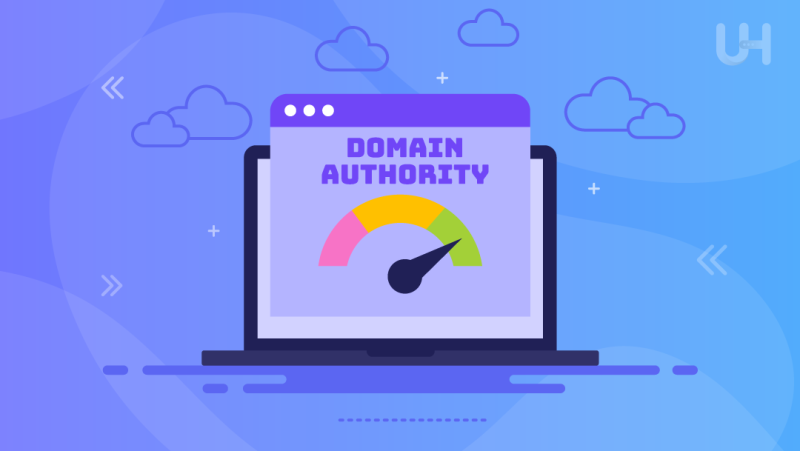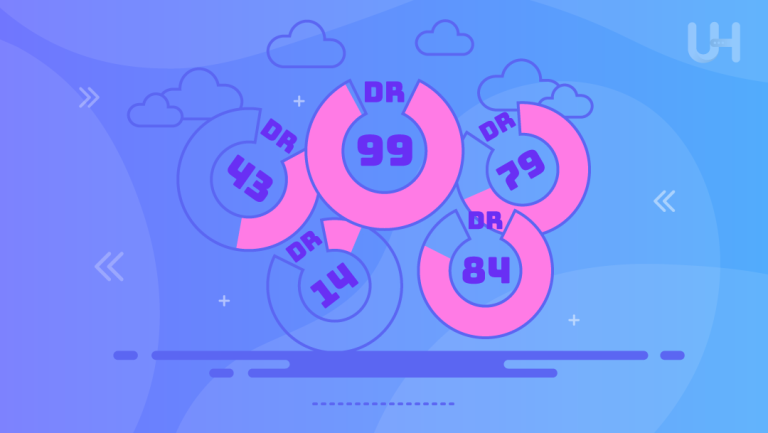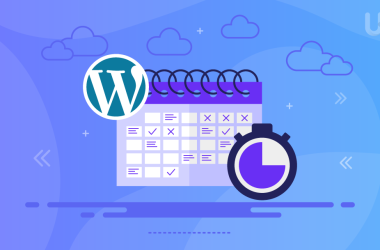A good knowledge of strong SEO metrics is necessary in this age of digital business, where an online presence can make or break you. One of the metrics about which conversations abound is Domain Authority. But really, what is Domain Authority, and why is it progressively becoming a buzzword worldwide?
In this beginner’s guide, we will explain exactly how Domain Authority works, how it’s calculated, and why it’s such a critical augmentation for your website’s performance in search engines.
Domain Authority is basically a search engine ranking score developed by Moz for estimating the search engine result pages. It runs from 1 to 100; the higher it is, the more chances to rank in increased DA. DA is based on all the factors and uses the calculations considering linking root domains of a user, and the raw count of links altogether results in a single DA score. This score is useful for comparison of websites and tracking the strength of ranking of a website across time.

Benchmarking
Domain Authority is a useful benchmarking tool. By comparing your score with others, you can truly assess where one stands on this competitive landscape. This could help reveal your strong points from the weak ones in an SEO strategy, motivating you to put in the effort needed to rise above the competition in rankings.
Evaluating Link-Building Efforts
Domain Authority is computed using the quality and quantity of backlinks to your site. A higher DA score generally indicates that your link-building efforts are effective. Monitoring your DA progress over time will help you evaluate your effectiveness in conducting your link-building campaign. This information can help you change your approach to obtaining high-quality backlinks to reputable sources so as to improve the overall score.
SEO Strategy Planning
An important metric to begin planning an SEO strategy is the Domain Authority score (DA). A high DA score means that your website is definitely primed to rank well for those competitive keywords. A low DA score indicates that one needs to be effective in building quality backlinks, optimizing on-page content, and performing technical SEO. Additionally, using SEO server hosting can further enhance your site’s performance, contributing to a better DA score. Knowing your DA score allows you to set realistic SEO goals. This means you can focus your efforts specifically on activities with the most potential to improve your ranking.
Monitoring Website Health
You can also monitor Domain Authority for clues to your site’s overall health. For instance, if your DA score drops precipitously, this may signal a potential problem, such as the loss of backlinks, technical issues, or even search engine penalties. Monitoring your DA score will help you recognize and solve problems before they significantly affect your website.
Content Marketing Insights
Content marketing is very significant for the impact on Domain Authority. High-quality, relevant content has a way of always attracting backlinks from websites; that, in turn, bumps up your DA score. Knowing which content pieces contributed more to the DA score, you can create more of that type to drive traffic to your site.
Investment and Partnership Opportunities
DA can help increase your website’s credibility and make it more attractive to potential investors and partners. Investors and business partners will often consider DA an indicator of a website’s authority regarding its potential growth. A high score in DA can thus be taken as an indicator that your website is a valuable and trusted entity that an investor or partner can lean on to achieve their objectives.
Moz’s Domain Authority checker is based on a very complex algorithm, including a lot of factors. Here are some of the key ones:
- Linking Root Domains: This is one of the most significant factors. The number of domains linking to your site is critical in this dimension. Again, high DA scores are seen mostly in those websites which have a large number of high quality relevant backlinks.
- Total Links Numbers: These play a part, but quality is better than quantity when it comes to the number of sites linking back to your site overall.
- MozRank and MozTrust: These metrics assess the quality of links pointing to your site. MozRank measures the popularity of links, while MozTrust measures their trustworthiness.
- Content Quality and Relevance: High-quality, rich content that earns natural links from quality websites can really improve your DA score.
- User Experience: Site speed, mobile friendliness, and secure browsing, among other factors, also contribute to your DA score.
- Social Signals: Though not as important as backlinks, social media activity, supported by effective social media hosting, may impact DA.
The algorithm works like the search-ranking algorithm devised by Google, so it must be a good indicator of what you can expect from your site’s performance in search results.
It is very easy to track your Domain Authority score. Moz has a free tool called Link Explorer, with which you can check your DA score, among other SEO-based metrics. You can also use another free browser extension from Moz, MozBar, which helps you move through websites by showing the DA of any website visited. Some of the other popular SEO tools, like Ahrefs and SEMrush, also provide their variations on Domain Authority. Though it slightly varies in names, the methodology is kept almost similar.
Secure Your Online Presence with Powerful Domains!
Are you ready to take control of your website’s Domain Authority? With UltaHost’s reliable and affordable domain registration services, you’ll have the foundation to build authority and climb the search rankings.
Domain authority scores range from 1 to 100. 1 indicates poor performance, and 100 indicates the best possibility to rank. But what constitutes a good score? Here’s a breakdown:
| Domain Authority Score | Value |
| 1-20 | Poor |
| 20-40 | Normal |
| 40-60 | Good |
| 60-80 | Very Good |
| 80-100 | Excellent |
But remember, while these categories are a general guideline, what counts as a good DA may differ based on industry, competition, etc. For example, a DA of 30 could be great for a niche blog, while a DA of 70 might be needed for very competitive industries like finance or technology. Ensure your DA is between 70 and 100, which greatly speaks to improving SERP performance.
Quality over Quantity of Backlinks
While building backlinks, quality is more important than quantity. Work on creating links on high authority relevant sites rather than just aiming at amassing a total number of links. Quality backlinks—broadcast to search engines that your site is a strong information resource; this will enhance your DA score. Surefire techniques to gain quality backlinks include guest blogging, making shareable infographics, and getting close to influential people in your niche.
Building high-quality backlinks is just one part of the equation when it comes to
strengthening your site’s authority. If you want to learn more about the other factors that
contribute to a higher DA score, you can refer to a guide on increasing domain authority,
which covers strategies like internal linking, content optimization, and site structure.
Write Quality Content
Content is king in the world of SEO. Top-notch content will immensely help improve your domain authority. Ensure that you have informative, well-researched, and relevant content for your audience. The beauty of creating great content is that, apart from better backlinks, users spend more time on your site, thus reducing bounce rates and improving user engagement—factors that will positively impact your DA.
Improve User Experience
A good user experience is important for DA maintenance and growth. This includes making the website easy to use, fast, and mobile-friendly. The more natural and smooth the experience a site provides for a user, the more people will come and stay, creating better engagement metrics to improve DA scores.
Organize Your Website
A clean and logically navigated site will give both users and search engines an infinitely better feel for your content. Undoubtedly, part of this is having a clean structure, or hierarchy, of pages on your site that fits into clear categories and subcategories. You may further improve the structure of your website through a sitemap creation aspect and proper internal linking to allow search engines to crawl and index all of your pages easily, which hence supports enhancing DA.
Use Internal Linking
All one really has is internal linking when it comes to maximizing Domain Authority. Creating links to other pages on your site will help you share what’s known as link equity—the SEO value passed from one page to another—to quite a few other pages of the website. It tells search engines how it all fits together and that some pages are more important than others, therefore putting them at the top of search results. Internal links will also keep on-site time longer by engaging metrics that are big factors in DA score.
Conclusion
Domain Authority score is essential to improve a website’s performance in search engine rankings. By understanding what DA is, how it’s calculated, and how to improve it, you can enhance your site’s visibility, attract more traffic, and achieve your SEO goals. Enhancing Domain Authority takes time and consistent effort, but the rewards for better search rankings and increased online presence are well worth it. Aim to create high-quality content, build strong backlinks, and provide an excellent user experience to see your DA score rise over time.
Securing a trustworthy SSL certificate from UltaHost is essential to boost your domain authority further and protect your website. They safeguard your data and enhance your site’s credibility in the eyes of search engines and visitors alike.
FAQ
What is Domain Authority, and why does it matter?
Domain Authority is a score that predicts how well a website will rank on search engines, helping gauge your site’s competitive strength.
How is Domain Authority different from Page Authority?
Domain Authority measures the ranking potential of an entire website, while Page Authority focuses on a single webpage.
What factors influence my Domain Authority score?
Key factors include the quality and quantity of backlinks, site structure, content quality, and overall user experience.
Can I directly improve my Domain Authority?
You can’t directly alter your DA score but can boost it over time by improving your SEO practices.
Is a high Domain Authority necessary for all websites?
It depends on your niche and competition. However, a higher DA generally improves your chances of ranking well.
How often does my Domain Authority score update?
Domain Authority scores are updated regularly, but the frequency can vary depending on the SEO tool you’re using.
What tools can I use to check my Domain Authority?
Moz’s Link Explorer, MozBar, Ahrefs, and SEMrush are popular tools for checking Domain Authority.














